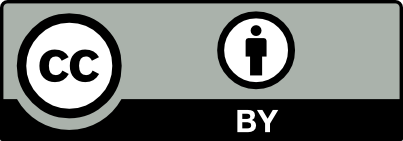Revalidation of the positive serological panel intended for the quality control of kits for HIV serological diagnosis
DOI:
https://doi.org/10.22239/2317-269X.01570Keywords:
HIV; Serological Panel; AIDSAbstract
Introduction: Kits used in the diagnosis of the human immunodefciency virus (HIV) must meet the requirements of RDC No. 36, of August 26, 2015 for registration with the National Health Surveillance Agency and Law No. 6.360, of September 23 1976 for commercialization in the country. One of the registration steps corresponds to the previous laboratory analysis of the products with the highest risk class (class IV), carried out by the Laboratory of Blood and Blood Products (LSH). In the analysis of the products, serological panels consisting of true positive samples are used as the main tool in the sensitivity assessment. Objective: To revalidate a true HIV positive serological panel for the evaluation of in vitro HIV diagnostic kits. Method: A retrospective evaluation and selection of the panel results was performed against the kits that obtained satisfactory results and were received for prior analysis from January 2010 to December 2011. The reactivity of the panel samples in three immunoenzymatic assays (ELISA), in three chemiluminescence assays (CLIA), in three immunochromatographic assays (rapid tests) and in three western blots was used as revalidation criterion; and reactivity in an enzyme-linked fluorescent enzyme assay (ELFA), in addition to a volume equal to or greater than 1 mL. Results: During the period, 73 kits for in vitro diagnosis of HIV infection were received for analysis at the LSH, 47 (64.4%) of which were satisfactory, distributed as follows: 43.0% (20/47) ELISA, 34.0% (16/47) immunochromatographic assays, 13.0% (06/47) western blot, 2.0% (01/47) ELFA, 8.0% (04/47) chemiluminescence assays. After the evaluation, 77.0% (34/44) of the units were revalidated, and 23.0% (10/44) were excluded from the panel, as they did not meet the established criteria. Conclusions: The revalidated panel currently consists of 34 units of true positive samples, with consistent results, thus increasing the reliability and safety of the analyses carried out and of the tests marketed in the country.
Downloads
Downloads
Published
Issue
Section
License
Copyright (c) 2022 Health Surveillance under Debate: Society, Science & Technology (Vigilância Sanitária em Debate: Sociedade, Ciência & Tecnología) – “Visa em Debate”

This work is licensed under a Creative Commons Attribution-NonCommercial-NoDerivatives 4.0 International License.
COPYRIGHT ALLOWANCE The author (s) hereinafter designated as the ASSIGNOR hereby assign and transfer, free of charge, the ownership of the copyrights related to this ARTICLE to the Vigilância Sanitária em Debate: Sociedade, Ciência & Tecnologia (Health Surveillance under Debate: Society, Science & Technology) – Visa em Debate, represented by FUNDAÇÃO OSWALDO CRUZ, established at Av. Brasil, nº 4365, Manguinhos, Rio de Janeiro, RJ, Brazil, CEP 21045-900, under the conditions set out below: (a) The terms and conditions set forth in this Agreement shall apply to the following: 1. The ASSIGNOR declares that they s(he) is (are) the author (s) and owner (s) of the copyrighted property of the ARTICLE submitted. 2. The ASSIGNOR declares that the ARTICLE does not infringe the copyrights and / or other property rights of third parties, that the disclosure of images (if any) has been authorized and that they s(he) assume(s) full moral and / or property liability for its content, before third parties. 3. THE ASSIGNOR assigns and transfers all copyrights relating to the ARTICLE to the ASSIGNEE, especially the rights of editing, publication, translation into another language and reproduction by any process or technique. The ASSIGNEE becomes the exclusive owner of the rights related to the ARTICLE, and any reproduction, totally or partially, is prohibited in any other means of publicity, printed or electronic, without prior written authorization from the ASSIGNEE. 4. The assignment is free and, therefore, there will be no remuneration for the use of the ARTICLE by the ASSIGNEE.







